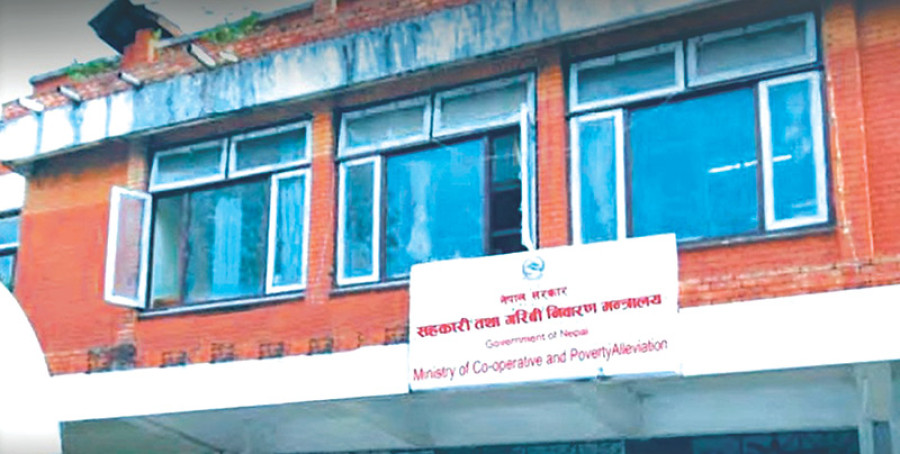Money
Lawmakers oppose strict provisions in cooperative bill
A draft bill to create a new Cooperative Act has been stuck at the sub-committee under the parliamentary Finance Committee as lawmakers have disapproved its stringent provisions regarding supervision of the largely unregulated cooperative sector.
A draft bill to create a new Cooperative Act has been stuck at the sub-committee under the parliamentary Finance Committee as lawmakers have disapproved its stringent provisions regarding supervision of the largely unregulated cooperative sector.
According to the Ministry of Cooperatives and Poverty Alleviation which prepared the draft, more than 65 lawmakers involved in the deliberations over the draft are directly or indirectly running cooperatives, and they are not keen on allowing strict regulation of the sector.
The bill was tabled in Parliament last September, and it has been tossed back and forth between the floor of the House and the sub-committee since then.
The bill contains provisions to check conflict of interest on the board of directors, malpractices in cooperatives like having multiple memberships and running them like a family business besides separating the functions of the board and management.
According to the proposed law, a person will not be allowed to become a member of more than one cooperative of a similar nature at a time. If someone is already a member of more than one cooperative, he or she will have to give up the excess memberships within a year of the law coming into effect, according to the bill.
Similarly, more than one member of a family will not be allowed to become a candidate or be elected as a board director. Board directors will not be allowed to become a member of the staff of the same or another cooperative.
The government has also proposed restricting any board director from being involved in the decision making process when there is a personal or private interest.
The draft bill has been prepared based on the report of a high-level commission led by former Special Court Justice Gauri Bahadur Karki. The commission had investigated 130 troubled cooperatives, and recommended to the government to formulate a new act with stern provisions to prevent misconduct.
According to sources, 693 amendment proposals have been submitted since the bill was tabled in Parliament. Numerous discussions have been held over the bill since last November because of the disagreements.
Lawmaker Harilal Gyawali said the sub-committee had been deliberately delaying the bill. “It will not take such a long time if the sub-committee actively holds talks with experts from the sector,” he said.
According to Gyawali, who is also a member of the parliamentary sub-committee, the coordinator of the sub-committee held a meeting asking to postpone deliberations over the bill for two days.
“We are also surprised why the meeting could not be held,” Gyawali said. “Dragging its heels over such critical issues when elections are round the corner has raised suspicions over its endorsement.”
Meanwhile, lawmakers have been hotly debating the tax rate for cooperatives. The bill has proposed zero tax for rural cooperatives and a maximum of 10 percent for those operating in metropolitan areas.
It has recommended a tax rate of 7 percent tax for cooperatives in sub-metropolitan areas and 5 percent for those operating in municipalities.
Likewise, lawmakers have also objected to provisions allowing only natural persons to become members of cooperatives, barring cooperatives from receiving deposits more than 10 times their share capital and prohibiting cooperatives from investing in primary shares.
Min Raj Kandel, senior vice-president of the National Cooperative Federation, stressed the need to create the act as per international practices and the norms set by the International Cooperative Alliance. “The provisions should be made transparent,” Kandel said.




 9.7°C Kathmandu
9.7°C Kathmandu














